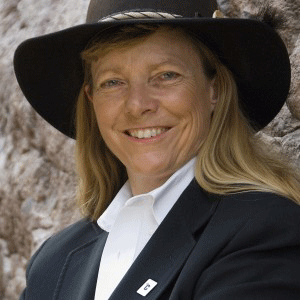Hunter Lovins, a pioneer and champion of sustainable and green businesses, will be the featured speaker in a day-long series of events at Fordham University on Tuesday.
Tuesday, Oct. 21, 2014
10 a.m., 2:30 p.m. and 8 p.m.
Campbell Commons, Butler Commons, and Duane Library | Rose Hill campus
Room 515 | Lincoln Center campus
Lovins, best known for her 1999 book Natural Capitalism, will be speaking to several different audiences on sustainability topics. The day’s events are organized and supported by the Fordham Social Innovation Collaboratory.
Her first lecture, “How To Get A Job Saving the Planet,” will kick off a new breakfast series about creativity and social innovation, sponsored by the Management Society and Fair Trade Club. The inaugural “Food For Thought” breakfast will take place at 10 a.m. Campbell Commons on the Rose Hill campus.
Lovins’ second appearance, set for 2:30 p.m. at Butler Commons, Duane Library, will be “Triumph of the Sun: How to Stop Global Warming and Recapture the Future.” The discussion will involve sustainable business students and economic students, as well as their professors, Michael Pirson, Ph.D., associate professor of management studies, and Marc Conte, Ph.D., assistant professor of economics. The talk is open to the Fordham community.
At 8 p.m., Lovins will speak to undergraduate students from Sustainability in Finance (taught by Frank Werner, Ph.D., associate professor of finance and business economics) and graduate students from New Models of Management (taught by James Stoner, Ph.D., professor management systems). The talk, which will take place at the Lincoln Center campus, will cover how Lovins became committed to sustainability and what institutional changes are needed to achieve a sustainable planet. Her presentation is open to the Fordham community.
Founded in 1841, Fordham is the Jesuit University of New York, offering exceptional education distinguished by the Jesuit tradition to more than 15,100 students in its four undergraduate colleges and its six graduate and professional schools. It has residential campuses in the Bronx and Manhattan, a campus in West Harrison, N.Y., the Louis Calder Center Biological Field Station in Armonk, N.Y., and the London Centre in the United Kingdom.

